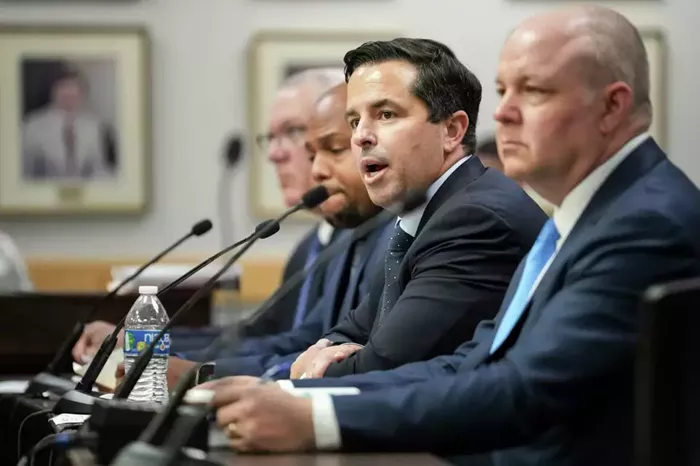A Texas state lawmaker announced Monday the potential push for legislation aimed at reclaiming some of the $800 million spent by CenterPoint Energy on generators that remained unused during Hurricane Beryl. The storm left over 2 million customers in the Houston area without power.
State Senator Paul Bettencourt criticized CenterPoint, alleging that the company had “defrauded” ratepayers, who now face rising utility bills. Following approval from state regulators, CenterPoint was allowed to recover the generator costs along with a 6.5% profit. This recovery has already increased the average residential customer’s bill by approximately $1 per month, with projections indicating a potential rise of another $3 per month in the coming years.
“It’s a significant issue because these costs are burdens that our ratepayers will carry for a long time,” said Bettencourt, a Republican from Houston, during a heated hearing. CenterPoint CEO Jason Wells, who testified at the hearing, took “personal responsibility” for the company’s shortcomings but stated he would not resign.
Bettencourt mentioned the possibility of introducing legislation to “claw back some of this expense,” though he did not provide specifics.
The senator accused CenterPoint of prioritizing generator expenditures over tree-clearing efforts, which could have mitigated power outages. According to Bettencourt, the company preferred the generators because they were profitable, unlike vegetation management. CenterPoint has frequently cited fallen trees and branches as the primary cause of power outages affecting over 80% of its customers, with some outages lasting more than a week.
“Vegetation management doesn’t generate profit, but generator expenses do,” Bettencourt noted. “If there’s no profit in vegetation management, those efforts may be reduced.”
The remarks came during the inaugural hearing of a special committee evaluating the state’s hurricane preparedness and utilities’ responses post-Beryl. The panel also questioned Thomas Gleeson, chairman of the Public Utility Commission, about potential legislation to impose higher penalties on utilities failing to maintain power, set new customer communication standards, and more.
“This cannot be the new normal,” asserted state Senator Carol Alvarado, a Democrat from Houston.
Much of the hearing was devoted to scrutinizing CenterPoint, with state Senator Lois Kolkhorst accusing the utility of breaking its “social contract” with customers. Senators inquired about the malfunctioning outage map, inadequate tree removal efforts, and the substantial investment in generators that went unused.
Bettencourt and state Senator Charles Schwertner, who chairs the panel, questioned the generator contract, suggesting it might constitute “fraud.” Bettencourt pointed out that CenterPoint ignored a competing bid that was at least 44% cheaper.
“It doesn’t smell good at all,” remarked Schwertner, highlighting the $30 million profit CenterPoint seems to have made from the generator purchase. “There’s more to this story that needs to come out sooner rather than later.”
Wells defended the decision, stating that the lower bid did not meet the utility’s requirements, as it offered fewer units and had significantly higher operational costs.
“It’s apples and oranges; it was a non-conforming bid,” Wells explained.
Wells mentioned that the generator purchase was part of a broader investment initiative aimed at enhancing resilience. Despite the generators remaining unused, Wells cited 115 instances since Winter Storm Uri where ERCOT issued market-tight notices.
The generators, each with a 32-megawatt capacity, can power entire neighborhoods but require several days for assembly and special permits for relocation, complicating their deployment.
Wells outlined a 40-point improvement plan, including hiring new communications and emergency preparedness officers and launching a website to update customers on progress. A new outage tracker is expected to go live on Thursday.
Wells also reported a “significant” increase in vegetation management spending since early last year, though the utility is limited in trimming trees on private property without permission. Despite a 77% increase in vegetation maintenance costs over the last decade, the miles of power lines kept clear by CenterPoint have decreased by 20%.
Amidst the post-Beryl criticism, Wells stated he has no intention of resigning, emphasizing his commitment to addressing the issues raised.
- Cummins QSK60 Review: The Heavy-Duty Powerhouse For Industrial Applications
- 5 Best Whole House Diesel Generator
- How To Use An Electric Generator For Home?

